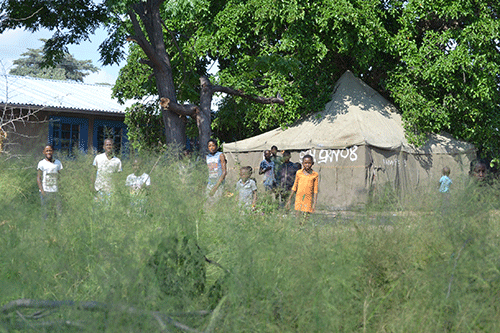The first Namibia Senior Secondary Certificate Advanced Subsidiary (NSSCAS) candidates have not just laid a strong foundation for the new curriculum, but have also set a high standard for the coming cohorts.
These are some of the sentiments shared when vital forces in the education fraternity sat down on Friday at government’s information centre to unpack the AS level results that were released last week.
Out of the 5007 learners who sat for the examination, the majority obtained grades A to C with the peak at C grade, and only 7.7% of learners are ungraded in all subjects.
The AS level was implemented for the first time in Namibia last year as part of the third basic education change that started in 2012, following resolutions taken at the 2011 education conference, which includes phasing out the Higher International General Certificate of Secondary Education (HIGCSE) in 2010.
This means grade 11 is the first exit point from basic education.
The Namibia National Students Organisation’s deputy secretary for higher education Innocent Pieters said some of the contributing factors for the exceptional results could be that there were high expectations for the new curriculum.
“It was something new, but they put their efforts and dedication into ensuring they reap the fruits of the new curriculum,” he added.
Sharing his experience as one of the pioneers of the AS level, Chika Libuku from St Paul’s College, who is also the second-best performer in the country, said the transition from Ordinary Level to AS level was steep, and not congruent with the content and time available to cover the course.
“With every single thing that is new, there are always challenges. There was no exception with the AS level, because there was a lot of uncertainty from a teacher’s standpoint because they have never taught such a syllabus. As a result, pupils were confused and in the dark most of the time,” he stated.
Libuku suggested that the system could integrate a bit of AS level in Ordinary Level to ensure a smoother transition between the two
levels.
“That way, pupils have at least knowledge of what to expect in the next year’s syllabus, and they will be much more prepared,” he added.
Libuku also complained about the lack of AS level textbooks, which resulted in them using foreign textbooks and sources.
Speaking at the same event, national director for examinations Clementine Tsumis-Garises said the implementation of the AS level was intended to narrow the gap between tertiary institutions and formal education.
“AS level was never implemented before, and it is demanding. It is meant for high flyers, focused learners and those candidates who know what they want as far as education is concerned. So, learners, teachers and other stakeholders should take it as something different from what we had before, and work harder to master the content of the syllabus, skills and competencies that are required in order for these candidates to excel at the start of the tertiary level,” she noted.
The new curriculum has been touted as favourable for Namibian students on the international academic scene.
According to the Cambridge Assessment International Education online site, thousands of learners worldwide gain places at leading universities every year with Cambridge International AS levels, as the syllabi develop a deep understanding of subjects and independent thinking skills.
Tsumis-Garises said the Ordinary Level is pegged against the IGCSE of Cambridge, which is recognised worldwide, and AS is pegged against the AS level of Cambridge, which is also recognised globally.
“AS level is also listed on the framework of the national qualifications as level 4, which is equivalent to the AS level of Cambridge, so it has made our learners very competitive, as long as they score good grades,” she explained.
Out of 1 920 schools in Namibia, only 88 public and 14 private schools sat for the AS level examinations for 2021.
Pieters encouraged more learners to take up the challenge and study on AS level.
“AS level is more than just an academic aspect; we should also look at it from a self-development perspective. Learners become more aware of themselves, and it also gives them more sort of responsibility,” he reasoned.
– ashikololo@nepc.com.na


